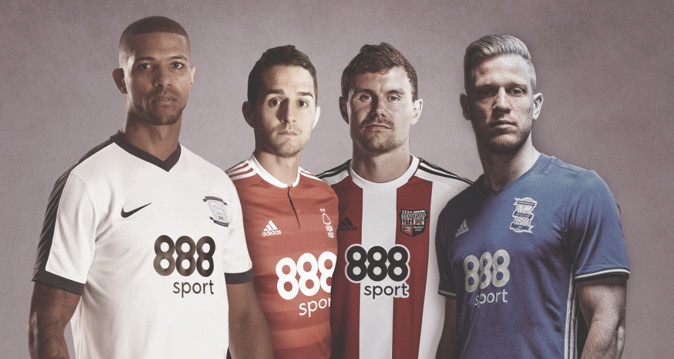Health Of The UK Betting and Gambling Industry In The UK
 Exactly what your opinion of the betting industry is will likely depend on the angle you’re looking at it from. If you’re a punter that has been very successful over the past few years then the likelihood is that you’ll feel everything is in rude health and will be keen for things to carry on as they have been. If, on the other hand, you’re someone that has found themselves having a tricky relationship with Fixed Odds Betting Terminals or have spread yourself too thinly in recent times then you’ll have precisely the opposite point of view and be keen for things to be reassessed as soon as possible. There are also the various bookmaking companies that have sprung up in recent times who will be keen for their position in the industry to be strengthened rather than questioned.
Exactly what your opinion of the betting industry is will likely depend on the angle you’re looking at it from. If you’re a punter that has been very successful over the past few years then the likelihood is that you’ll feel everything is in rude health and will be keen for things to carry on as they have been. If, on the other hand, you’re someone that has found themselves having a tricky relationship with Fixed Odds Betting Terminals or have spread yourself too thinly in recent times then you’ll have precisely the opposite point of view and be keen for things to be reassessed as soon as possible. There are also the various bookmaking companies that have sprung up in recent times who will be keen for their position in the industry to be strengthened rather than questioned.
There’s also the matter of wondering exactly what is meant by asking a question of the ‘health’ of the industry. Does that mean how much money is being spent on bets on a daily, weekly or monthly basis? Or is it more a question of how well respected the world of bookmaking is at any given moment? There have been numerous controversies that have sprung up, catching the attention of the press and causing political parties to make bold decisions about how the industry is treated. This piece will have a look at all aspects of the world of betting, giving as honest as account as possible on how you could interpret the question about its ‘health’, though it’s important to point out that it will in no way be definitive.
There Are More Options To Bet Than Ever Before
 If you were to only look at the headlines about the various gambling companies out there then you could easily form the impression that there were fewer than ever before, thanks in no small part to the major mergers that have taken place in recent times. Paddy Power came together with Betfair to create Paddy Power Betfair in February of 2016, for example, meaning that two big bookies became one huge one. There was also the Ladbrokes-Gala-Coral merger, which became part of GVC Holdings in March of 2018. That turned three good-sized companies into a conglomerate that threatened to dominate the industry as a whole, especially owning to the fact that both Ladbrokes and Coral have a high street presence that plenty of bookmakers can’t rival.
If you were to only look at the headlines about the various gambling companies out there then you could easily form the impression that there were fewer than ever before, thanks in no small part to the major mergers that have taken place in recent times. Paddy Power came together with Betfair to create Paddy Power Betfair in February of 2016, for example, meaning that two big bookies became one huge one. There was also the Ladbrokes-Gala-Coral merger, which became part of GVC Holdings in March of 2018. That turned three good-sized companies into a conglomerate that threatened to dominate the industry as a whole, especially owning to the fact that both Ladbrokes and Coral have a high street presence that plenty of bookmakers can’t rival.
Yet in truth there are more options out there for you to place your bets with than ever before. Since the gambling laws were relaxed in the UK thanks to the 2005 Gambling Act, online companies have been forming at a rate of knots. As a result, a quick search for ‘online betting’ will see you presented with hundreds of options. The big boys like William Hill, Bet365 and Betfred haven’t gone anywhere, but now they’re joined by some lesser-known companies that want your business and are willing to give you decent offers and promotions to get it. It puts the customer in a position of strength, allowing you to pick and choose who you place your bets with according to the best odds and offers on the market. The question, of course, is whether or not that actually means that the betting industry is ‘healthy’.
From the point of view of the punter the answer is obviously ‘yes’. No longer will you feel as though there’s nowhere for you to turn to place your bets than just the so-called ‘big boys’, instead being presented with a myriad of options that means that you can almost always place the bet that you want. The explosion of the world of exchange betting makes that even more the case, with customers literally able to ‘play the part’ of the bookmaker and find their own odds and someone willing to take them up on them. Yet what does that mean for the companies that are providing you with standard fixed-odds?
The growth of the major bookmakers mentioned earlier because of mergers and takeovers means that they’re feeling stronger than ever before, but for the smaller companies that are only just starting out it means that they’re having to work hard for business. The decent promotions and excellent odds offered might be great for those of us that are placing the bets, but it’s making it tougher for the smaller bookies to make a profit. Not that we should feel sorry for them, of course, but the more saturated the market becomes the more likely it is that these companies will begin to go out of business, meaning that the promotions will dry up and the massive conglomerates will be the only ones that we’ll be able to place bets with.
How Much Money Does The Betting Industry Make?

One of the main points you’ll want to have a look at if you’re considering the relative strength of any industry is the amount of money that it makes and, in that sense at least, the gambling industry doesn’t have much to worry about. In 2008 a report by the Gambling Commission suggested that the amount of money gambling firms won from customers was somewhere around the £8 billion mark. By 2016 that had gone up to more than £13 billion, suggesting that there was no shortage of people willing to have a flutter on a regular basis.
Both Fixed Odds Betting Terminals and an increase in National Lottery sales are believed to have contributed to the increased gross gambling yield for the industry, but perhaps the biggest increase has come in the remote betting section. That is the name given to money taken online, which amounted to less than one billion pounds in 2009 but is now closer to five billion. Again, the question is does that suggest that the industry is ‘healthy’? It might be from the point of view of the companies that are making such healthy profits, but not necessarily for the punters that are spending such large amounts of money. Indeed, the Gambling Commission’s report suggested that the number of people believed to have a ‘problem’ with gambling has gone up by a quarter from around 0.6% of the population to closer to 0.8%.
In the 2018 autumn budget the chancellor raised the point of consumption tax for online gambling on games of chance from 15% to 21%. While this may have a minor effect on profits it will be countered by the industry growing as a whole, the majority of the cost will also be passed onto the customer in the form of worse odds.
High Street Shops Are Closing

One of the other areas to consider when discussing the relative health of the industry is the fact that high street shops are closing fairly rapidly, with the government’s recent decision to slash the odds taken by Fixed Odds Betting Terminals from £100 to £2 likely to cause even more issues. During the 1960s and 1970s there were around sixteen thousand betting shops on UK high streets, but this has dropped to closer to nine thousand according to the Association of British Bookmakers.
The loss of bookmakers from the high street isn’t just bad for the companies themselves, but also bad for numerous sporting industries. For starters, bookies have to pay a licence to show greyhound and horse racing events on screens in the shops, with a large amount of that money going towards the sports themselves. The fewer shops there are in existence, the less money that will make its way to horse and greyhound race tracks and the trainers of the animals, which will eventually impact on the state of the industries. Bookmakers also voluntarily donate money to the likes of the Responsible Gambling Trust, which is there to fund charities for treatment programmes for those that are struggling to cope with their gambling. Once more, this is suggestive that at least part of the industry isn’t in the best of health, even if the amount of money taken online is increasing.
Gambling Sponsorship Increasing In Football

One other aspect of the industry that is worth thinking about is the trend of gambling companies to become sponsors of big business, most specifically the world of football. The 2018-2019 Premier League season got underway with nine clubs being sponsored by bookmakers.
Perhaps what’s most interesting about that is that none of those clubs were being sponsored by what you would consider any of the ‘big’ businesses in the industry, with the following being the list of clubs and sponsors:
- Bournemouth – M88
- Burnley – LaBa360
- Crystal Palace – ManBetX
- Everton – Sport Pesa
- Fulham – DafaBet
- Huddersfield Town – Ope Sports
- Newcastle United – Fun88
- West Ham – Betway
- Wolves – W88
 Two-thirds of Championship teams were also being sponsored by betting companies at the same time, which is once more suggestive of an industry doing well for itself. After all, if so many companies have got the disposable income to be able to invest in sponsorship deals then things can’t be all bad; even if there is an extent to which it’s a matter of speculating to accumulate. Yet it’s also interesting that GambleAware were concerned that none of the bookmakers sponsoring the Premier League clubs had contributed anything to help gambling addicts, leading to the chief executive of the NHS, Simon Stevens, being critical of them.
Two-thirds of Championship teams were also being sponsored by betting companies at the same time, which is once more suggestive of an industry doing well for itself. After all, if so many companies have got the disposable income to be able to invest in sponsorship deals then things can’t be all bad; even if there is an extent to which it’s a matter of speculating to accumulate. Yet it’s also interesting that GambleAware were concerned that none of the bookmakers sponsoring the Premier League clubs had contributed anything to help gambling addicts, leading to the chief executive of the NHS, Simon Stevens, being critical of them.
Mr. Stevens said, “The NHS has opened its first mental health clinic aimed at gambling, and the Gambling Commission estimates there are 430,000 people with a gambling problem. This is at the same time as the voluntary contribution from the gambling industry has not been responded to by eight overseas firms who sponsor Premier League clubs, so we need to get onto the Premier League to make sure they contribute”.
Whilst the industry itself might be in a position of health in terms of the number of companies operating and the amount of money it’s making, therefore, it would be untrue to suggest that all those involved in the world of gambling are approaching it from a healthy perspective.
The reality, of course, is that the balance isn’t easy to find. Ultimately nobody is forced to gamble and the majority of companies do more than their fair share in terms of looking after the most vulnerable. Should business-minded companies operating in a capitalist market limit the amount of money that they make because they’re too profitable? Gambling companies do have a sense of social responsibility and are aware of the steps that they can take to help those most vulnerable, which is why they do their best to live up to the expectations of the Gambling Commission put on them by the rules and regulations set forth. The industry is, therefore, in a situation of health but will continue to look for ways to improve where possible.



